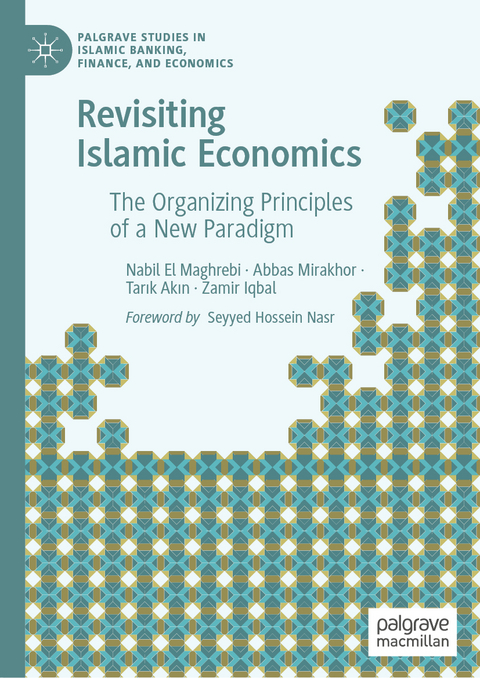
Revisiting Islamic Economics
Springer International Publishing (Verlag)
978-3-031-41133-5 (ISBN)
This book discusses the need for a paradigm shift from Islamic economics universe of discourse to Iqtisad, a socio-economic system that is entirely independent from other economic doctrines and systems of thought. It provides an overview of critiques of the science and dogma of mainstream, orthodox, neoclassical, or simply Economics, with its axioms of rationality, scarcity, and unlimited wants. There is also a critical analysis of Islamic economics, and its failures to set its own policy agenda and development objectives. Our contention in this book is that Iqtisad--the Qur'an's vision of how the economy is to be arranged-provides such a paradigm with a radically different philosophical foundation from that of Economics to the point that makes grafting one onto the other Impossible.
Iqtisad offers a genuine and authentic Islamic paradigm with unique etymological and philosophical foundations. It is a unique system that derivesits organizing principles from the principal source of the Quran, rather than Economics. The logical coherence of its immutable system of rules compliance, institutional structures, and risk-sharing relations provides the foundations for economic dynamism, financial stability, and shared prosperity. It ensures that resources are efficiently managed, poverty is eradicated, income and wealth mal-distributions are corrected, and the internal sources of economic injustices gripping human societies are eliminated.
The Impossibility Theorem proposed in this book implies that, metaphysically, ontologically, epistemologically, axiologically, and teleologically, the two polar cases of Iqtisad and Economics are so radically different to rule out any grafting of one onto the other in order to present an intermediate paradigm with a synthetic discipline called Islamic economics. Given its multidisciplinary contents,this book will be of interest to a wide audience, including economists, policymakers, philosophers, theologians, and jurists, and can guide also free-thinking readers to a clarity of understanding about the conditions of humanity and the imperative of change with a sincerity of purpose and coherence in knowledge.
lt;p>Nabil El Maghrebi is Vice President at Wakayama University, and Visiting Professor at the Center for Mathematical Modeling and Data Science, Osaka University, Japan.
Abbas Mirakhor is a retired Professor of Economics and the Former Executive Director of the International Monetary Fund (IMF).
Tarik Akin is Head of the Department of Participation Finance at the Finance Office of the Presidency of the Republic of Türkiye.
Zamir Iqbal is the VP Finance and Chief Financial Officer (CFO) of the Islamic Development Bank. Prior to that he served at senior positions at the World Bank.
Chapter 1: Polar visions of the Economy.- Chapter 2: Critiques of Mainstream Economic Doctrines.- Chapter 3: Critiques of the Current State of Islamic Economics.- Chapter 4: Ethics of Iqtisaad.- Chapter 5: Islamic Perspectives on the Cycle of Civilization and Problem of Knowledge.- Chapter 6: Islamization of Economics? An Impossibility Theorem.- Chapter 7: Behavioral Norms and Institutional Structure of Iqtisad-driven Economy.- Chapter 8: Rethinking the Essence of Macroeconomic Policies in the Iqtisad Paradigm.- Chapter 9: Risk Sharing and the Stability of Iqtisad-driven Economy.
| Erscheinungsdatum | 23.12.2023 |
|---|---|
| Reihe/Serie | Palgrave Studies in Islamic Banking, Finance, and Economics |
| Zusatzinfo | XXI, 373 p. 5 illus. |
| Verlagsort | Cham |
| Sprache | englisch |
| Maße | 148 x 210 mm |
| Gewicht | 642 g |
| Themenwelt | Geisteswissenschaften ► Religion / Theologie ► Islam |
| Wirtschaft ► Volkswirtschaftslehre ► Makroökonomie | |
| Schlagworte | Alternative economic system • economic and social justice • Islamic economics • Risk sharing • sustainable development |
| ISBN-10 | 3-031-41133-1 / 3031411331 |
| ISBN-13 | 978-3-031-41133-5 / 9783031411335 |
| Zustand | Neuware |
| Haben Sie eine Frage zum Produkt? |
aus dem Bereich


